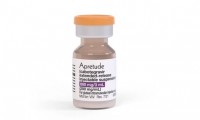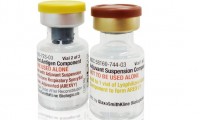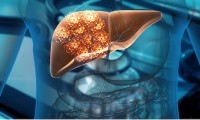-
ECLS does not improve survival in patients with acute myocardial infarction complicated by cardiogenic shock
- Source: drugdu
- 113
- August 30, 2023
-
AstraZeneca Latest to Sue Biden Administration Over IRA’s Drug Price Negotiations
- Source: drugdu
- 103
- August 30, 2023
-
Merck, Eisai Drop Phase III Keytruda-Lenvima Trial for Head and Neck Cancer
- Source: drugdu
- 106
- August 29, 2023
-
VC funding in medtech ticks up, raising hopes that slump has bottomed
- Source: drugdu
- 95
- August 28, 2023
-
Regeneron wins FDA approval for rare immune disease med Veopoz, expects high-dose Eylea decision in the coming weeks
- Source: drugdu
- 117
- August 22, 2023
-
Moderna says new Covid vaccine was effective against Eris variant in early trial
- Source: drugdu
- 104
- August 20, 2023
-
MSF, trying to secure supplies of ViiV’s Apretude, calls out new clauses in purchasing contract
- Source: drugdu
- 125
- August 19, 2023
-
GSK stays a step ahead in RSV vaccine battle as Arexvy becomes available at US pharmacies
- Source: drugdu
- 170
- August 19, 2023
-
Medtronic’s dialysis device recall assigned to Class I by the FDA
- Source: drugdu
- 143
- August 18, 2023
-
Delcath Gets FDA Approval for Cancer Drug-Device Combo 10 Years After Rejection
- Source: drugdu
- 109
- August 18, 2023
your submission has already been received.
OK
Subscribe
Please enter a valid Email address!
Submit
The most relevant industry news & insight will be sent to you every two weeks.













